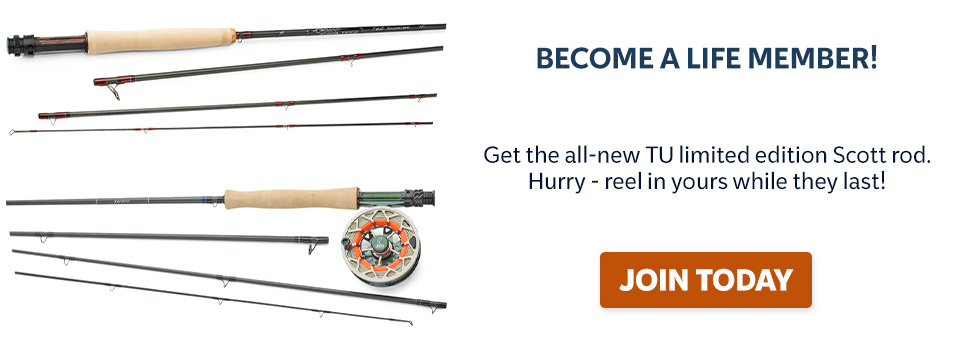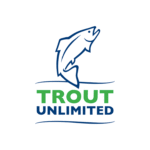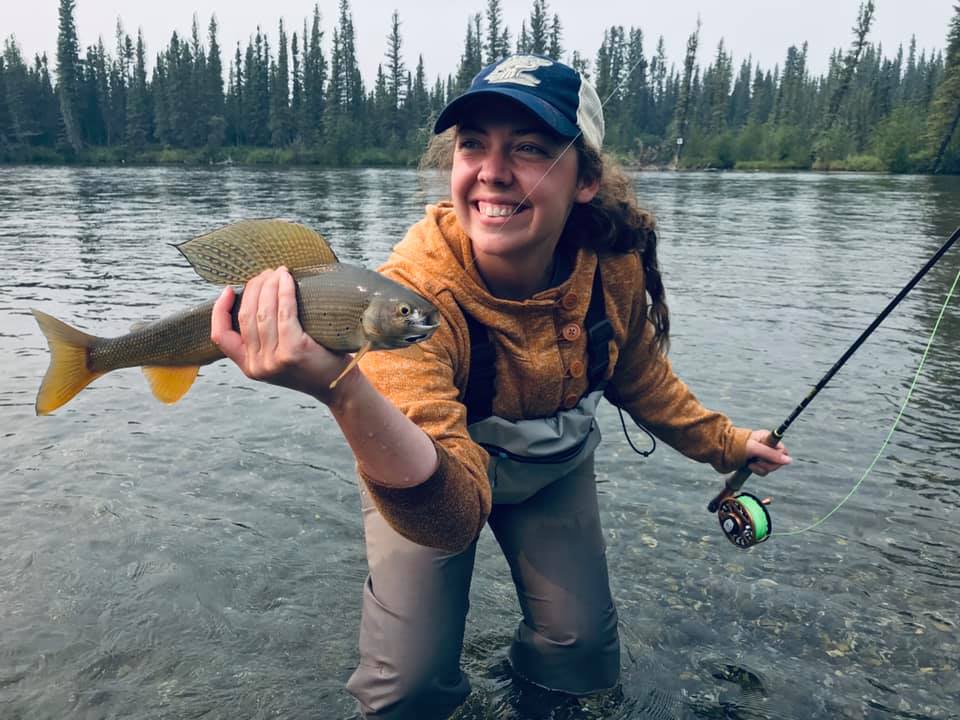I am a new angler. I came to Trout Unlimited with very limited fishing experience, and for the past 10 months that I’ve been working for TU’s Alaska program on the Save Bristol Bay campaign, I’ve been open about it. Our supporters, chapter members and my colleagues know that while I’m not new to conservation, I am new to the sport of fly fishing.
My openness with others about my elementary fishing skills have been countered with questions of why I choose to work for an organization that is so dedicated to protecting fish, fish habitat and access for anglers. Like many of my colleagues, my passion for Alaska and dedication to conserving natural resources goes beyond my own immediate interests. But despite my experience in, and passion for, conservation, the consistent question made me begin to ponder my place in the fishing community and my effectiveness in advocating for Alaska’s famed coldwater streams altogether.
So as the ice began to break away from Alaska’s rivers and the sun elongated our days this past spring, I told myself that summer 2019 was going to be the season that I commit to understanding the sport, and really learn how to fly fish. For my personal interest and professional growth, I had no excuses not to.
Luckily, I had built-in opportunities to gain more knowledge this summer. In facilitating and helping at some of the youth fishing programming that TU Alaska supports, I intentionally listened to the lessons that were geared toward new anglers. I said, “Yes” to chapter members and friends who offered to take me fishing and show me how it is done. In September, I traveled to Southeast Alaska and had the opportunity to watch my colleague, Kayla, who has 10-pluse years of experience in the sport. I was grateful for the opportunity to watch these friends cast as I tried to mimic their strokes that were powerful, graceful and appealing to all the fish we encountered.
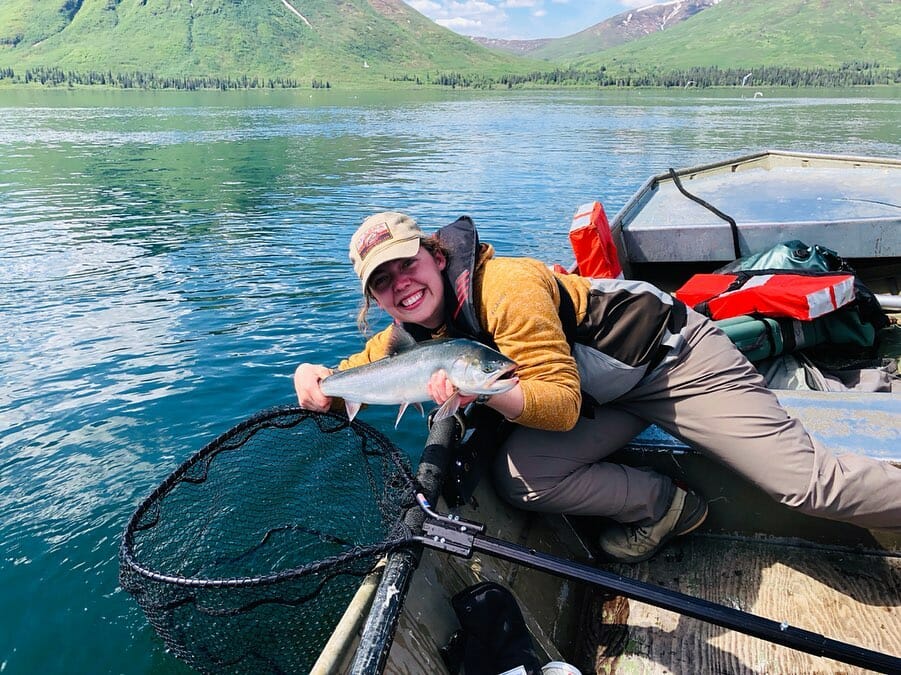
However, behind every awesome fish that was landed, I had to put myself out there, continuously ask for help, and come back after some big fails. These things are all challenges that I struggled with internally, especially when it came to asking for help. I’ve always been independent; learning how to fish provided a reality check that in some instances, I can’t be as self-sufficient as I’d like to be.
On the flip side, this summer showed me that the fly-fishing community throughout Alaska is especially giving. People are excited to show you how to take part in something that is inherently Alaskan, and I am incredibly grateful for the patient people who worked with me on casting, gifted nicely tied flies and shared secret honey holes on the rivers.
As summer began to wind down, and September brought cooler temperatures to southcentral Alaska, I was finally ready to test my independent fishing skills. Some girlfriends suggested we do a Saturday morning trail run to Eagle and Symphony Lakes, just 20 minutes north of Anchorage. I decided this would be the perfect opportunity to try fishing without any help. So, I threw my rod, reel, and small fly box in my trail running backpack, and we hustled out six miles to the beautiful blue lakes that were hidden in a valley of Chugach State Park.
When we got out there, I set up my rod and reel, tied on a fly that I had crafted at the kids fishing camp earlier in the season, and scanned the streams. I saw grayling rising to the surface to eat and I directed my casts toward them. Almost immediately, I had a fish on, and reeled it in.
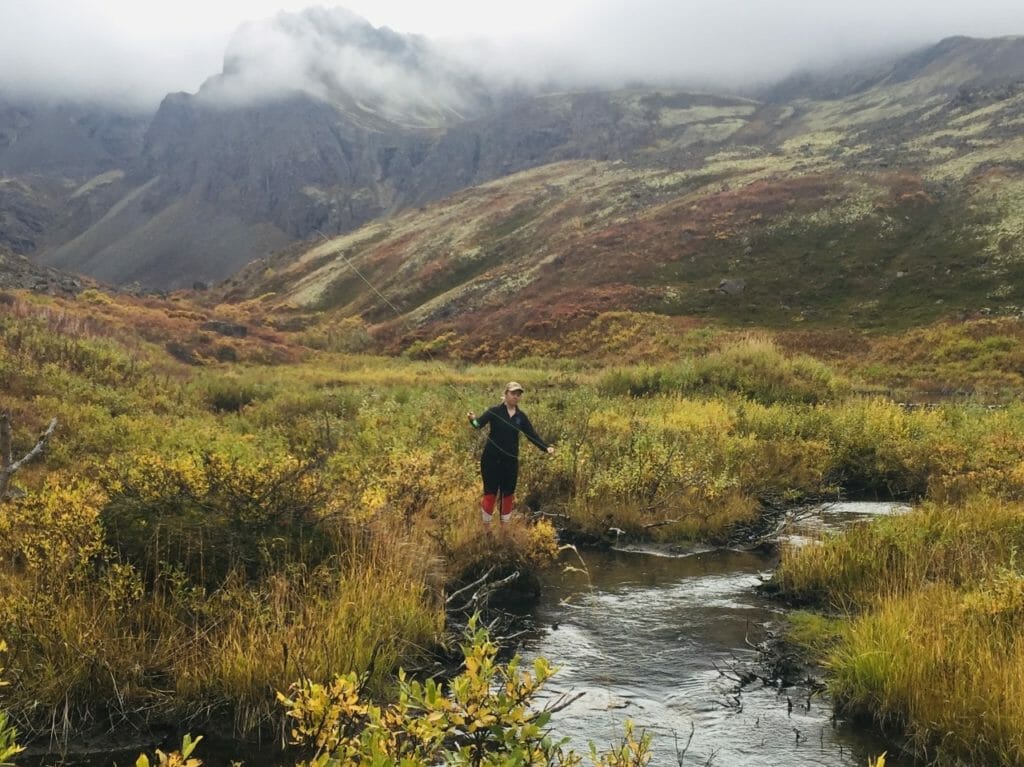
My friends cheered me on, and as I unhooked the fly from its mouth, I took a second to look at its beautiful purple and silver scales. While it was one of the smallest fish I had caught in my various adventures over the summer, it was by far the most rewarding. I had caught a fish on my own set up, with a fly I tied myself, in water that I had sought out myself. Finally, I felt like I had accomplished the goal that I had set at the beginning of the summer. And best of all, I turned around and was able to show one of my friends how to cast and reel in a grayling, too.
Through this fishing adventure, I had gotten a piece of my independence back, and I felt self-sufficient for the first time in a long time.
A couple weeks later, a found myself admiring my coworker Eric’s Instagram picture of a beautiful rainbow trout he had caught in the urban streams of Anchorage. I was ready to try another solo fishing adventure. I texted Eric for some intel: where he went and what fly he suggested. A sigh escaped me when he said he was fishing with beads- of course something I didn’t know much about.
While I had acquired some beads, I chased that feeling of being able to get set up and fish on my own. I could have asked Eric for help, but instead I shamelessly searched for Youtube videos of how to tie a bead knot while seated in my car in the parking lot where he suggested I start my adventure. I stumbled upon a video Kayla had made of how to make a bead rig and fish it. I let an audible sigh and shook my head with a chuckle. Sometimes help finds you even when you don’t ask for it or want it. Nonetheless, I walked down the trail and starting casting. Within four casts, I had a fish on, a small but stunning rainbow trout. I spent the next couple hours catching rainbows and a few Dolly Varden. I sent Kayla photos of nearly every single fish, incredibly proud of what I had found in my (mainly) solo adventure.
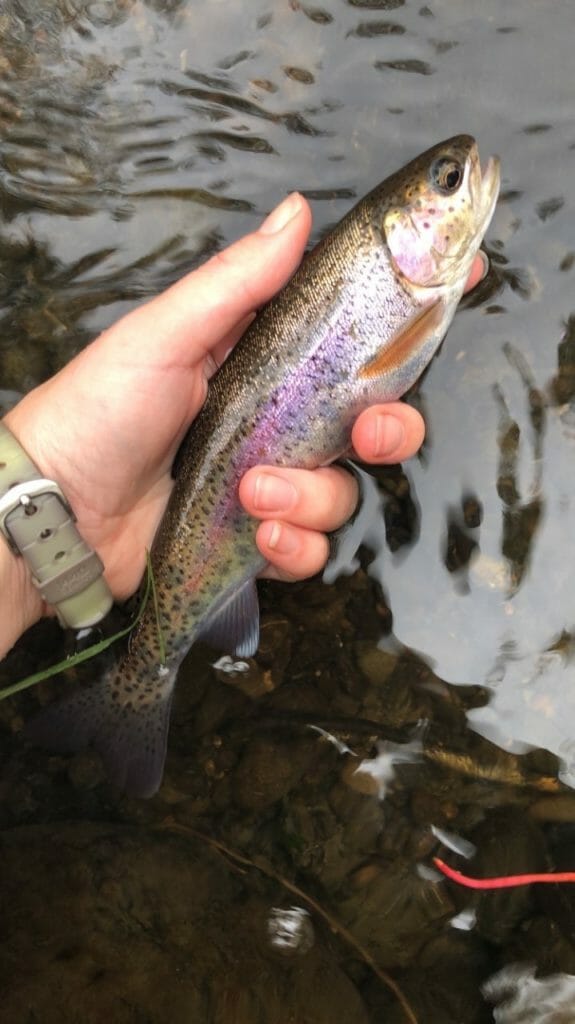
With daylight dwindling, it is clear that my fishing season for the year is coming to an end. But, as I reflect on the last few months, I’m really proud of myself. I met personal goals and also practiced getting comfortable with being uncomfortable in asking for help. I know that I will have to ask for help in some way, shape or form in the future, and when I do, I will think of all the beautiful grayling, rainbows, and Dolly Varden I was able to catch as a result of putting myself out there.
I know that I still have a lot to learn when it comes to fishing. But after this summer, my confidence has grown, and I feel like I have even more of a personal connection to the streams, fish, and community that I work to defend every day. Thank you TU family for your support- I look forward to learning and fishing with you in the seasons to come.
Meghan Barker is TU’s Alaska organizer and lives and works in Anchorage.

